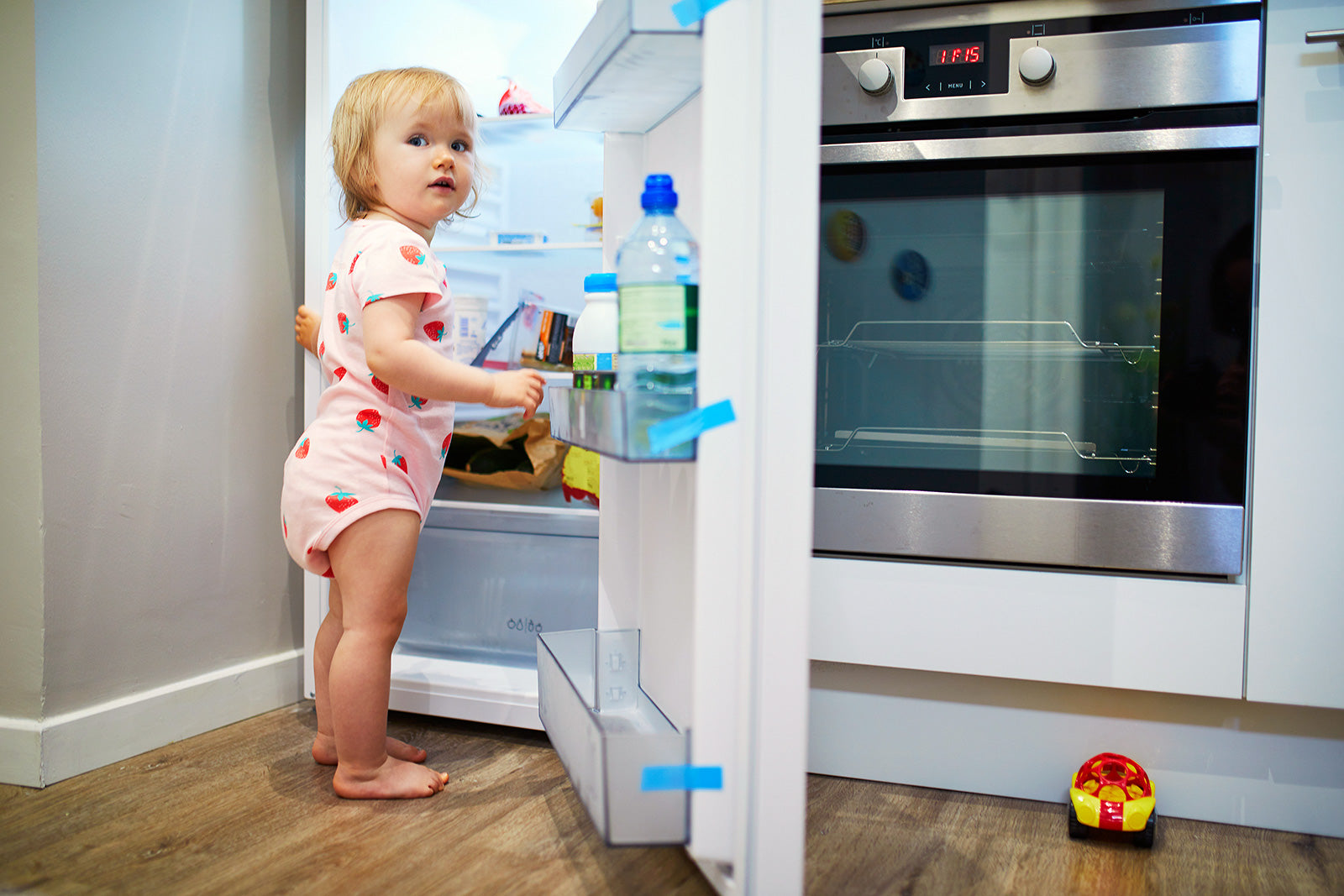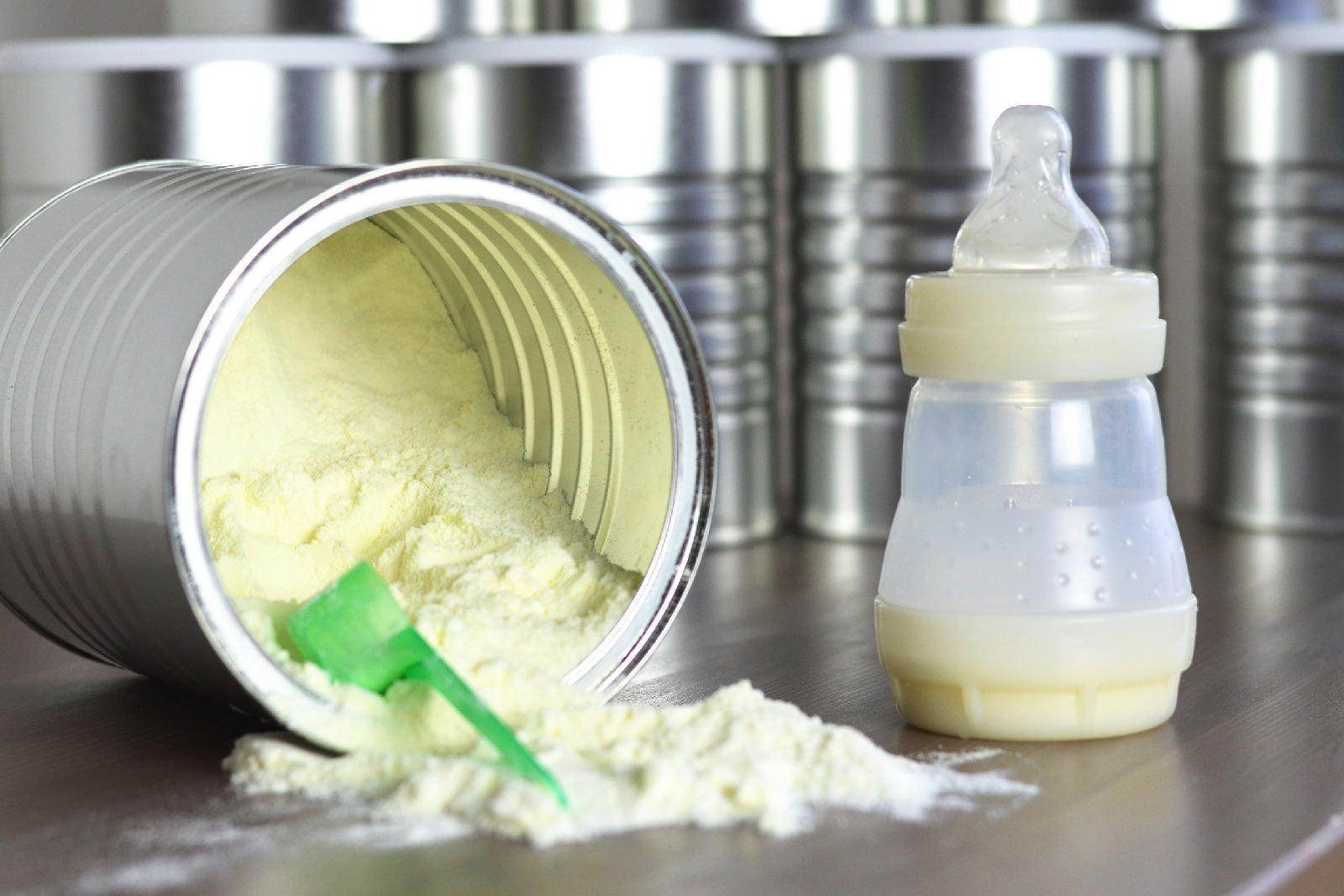Master The Daily Routine With Your Newborn

When you first become a parent, you see life through rose-colored glasses. You take just one look at your newborn and immediately feel immense happiness and joy. But as the weeks go by and your precious baby starts to grow up and develop, you’ll realize many things will begin to change. For instance, they may start waking up much earlier than before, leaving your schedule in shambles. With that in mind, if you want your household to thrive and have the best mornings, it’s time for you to learn how to create a daily routine for a newborn.
Why Is a Daily Routine For a Newborn Important?
Babies don't do much in the first few weeks except eat, nap, and sleep. Consequently, you may be asking yourself why you need a daily routine for a newborn.
While it’s true that newborns aren’t very physically active in the beginning, their mental skills are beginning to develop. Even if they’re quite small, babies love predictability, and sticking to a regular routine can help them with their later development. Ultimately, the daily routine you create with your newborn can make your life so much easier since you don’t have to feel like you need to do a million things at once.
Still, it’s important to remember that all daily routines for newborns are different. What might have worked for one parent doesn’t necessarily mean it will work for you. Instead of pulling your hair out during turbulent times, take it one step at a time. Routines take time to settle into your little one’s head, so always be patient, no matter how overwhelming it gets.
When Is The Best Time To Start a Daily Routine For a Newborn?
Once your bundle of joy arrives, you’ll spend most of your time gushing over how adorable they are. Trust us; you’re not the only one! However, it’s best to put your parenting pants on as early as possible and establish a daily routine for a newborn within the first few weeks of their arrival.
Luckily, one of the greatest perks of having a newborn is that they’re much less demanding than toddlers and preschoolers. You’ll see that all they do is eat, doze off, and make the cutest faces and sounds. This means that your morning routine for a newborn will mainly focus on these few aspects. Still, the one thing you should master before planning anything is timing.
You’ll hear most parents talk about setting their alarms an hour early to wake up and finish all their morning chores before their baby rises. While this may work in later years, it won’t be very effective with your newborn. What is essential at this time, however, is punctuality. Newborns and babies don’t understand the concept of time, and it will take them a few years to grasp it. But they will start noticing the difference between night and day during their development. Additionally, they will pick up on the things you do with them during these two periods, which is why you need to learn how to manage time or at least be punctual like a pro.
The best time to start creating a daily routine for a newborn is around 2-4 weeks. Luckily, your bundle of joy will most likely sleep through the night for 5-9 weeks, but the earlier you start, the better it will be in the long run.
The Best Daily Routine For a Newborn
Since you’re a new parent, you’re surely wondering how to start a routine with a newborn. There's no need to consider this a challenge; we’ve all been there at one point! To make things easier, here are a few steps to establish a daily routine for a newborn that works.
Before starting, erase any miracle expectations, thinking your baby won’t wake up during the night. They’re growing and changing, so these kinds of “surprises” are more than expected. But the sooner you establish your good morning routine, the more your newborn (and yourself!) will benefit, especially when it comes to sleep cycles.
Now that that’s out of the way, let’s see how you can master your daily routine for a newborn.
-
Have Your Baby Eat At The Same Time Each Day
Firstly, let’s begin with the easiest task of the morning routine for a newborn—eating. Generally, we recommend feeding your baby every 2.5-3 hours during the day. Although you may be compelled to give them snacks, you might want to leave them hungry enough so they understand the importance of having a full meal. If you’re breastfeeding, on-demand feeding is okay, but ensure it’s combined with the above-mentioned time frame.
While on the topic of feeding, most parents like to do this first thing in the morning, thinking their baby must be starving. However, leaving them enough time to fully wake up is smart, allowing them to begin understanding what “day” actually means. Use the time for some quick snuggles and bonding.
Still, not all of us parents have the luxury of time, so we tend to feed our babies as soon as they wake up. Leaving them in the nursery is a no-brainer since they’ll probably cry at the top of their lungs to get your attention. Well, what if we told you there is a solution where you can prepare your baby’s food while holding them simultaneously?
Introducing the bökee baby bottle holder! This one-of-a-kind bottle holder sticks to all kinds of surfaces, making prep as simple as possible. Simply put, you can hold your newborn in one hand while preparing a bottle in the other without any slips or spillages. Undoubtedly, the bökee will make your daily routine for a newborn so much easier!

-
Don’t Make Your Baby Sleep Right After They Eat
Many new parents make the mistake of feeding their baby to help them fall asleep. As much as this may be convenient for you, you risk your baby being under-tired.
It’s recommended to include some light activity during your good morning routine. Naturally, you wouldn’t expect your baby to run laps around the house—that’s reserved for the terrible twos. Light activity for newborns can be as simple as changing their diaper, taking a short walk around the block, or simply stretching their little arms and legs. By including these kinds of activities, you allow your newborn to release some energy received from their food, ultimately making them the right amount of tired before they doze off for their regular nap.
-
Pay Attention To Wake Windows
Newborns love to sleep a lot. In most cases, this works perfectly for you since you can finish some work around the house while they’re catching their Zs. However, it’s important to pay attention to wake windows.
If you’re unfamiliar with the term, wake windows are brief periods when your baby is fully awake and aware of the world around them. During 0-4 weeks, this period is quite short, often lasting no more than an hour, but as they grow, the wake windows extend. As a parent, you must take advantage of these periods to ensure your baby isn’t over- or under-tired.
During these wake windows, one great activity is to simply go outside! Research has shown that babies exposed to natural daylight are more likely to sleep better throughout their development. So, when it’s feeding or cuddle time, you might want to step outside and take in all the light you can. Of course, ensure they’re not exposed to direct sunlight, as this can be harmful to your newborn.
-
Establish The Difference Between Nap and Bedtime
Considering how tiny their brains are, babies don’t know the difference between naps and bedtime. All they know is that they get to sleep and call it a day. It’s up to you to make all the difference for them.
For naptime, keep the routine as simple as possible. Once your newborn is ready to sleep, read them a book and swaddle them as they drift off to dreamland. For bedtime, make it slightly more “complicated.” You can do all the activities we mentioned earlier, including a relaxing bath and regular bedtime feeding with the bökee, of course. It may not seem like much to you, but it means the world to your little bundle of joy!
-
Take It One Step At a Time
As previously mentioned, your morning routine for a newborn will never be perfect, no matter how hard you try. But don’t let this discourage you! It’s expected for babies to behave this way, which ultimately makes parenting the most fun challenge ever! Observe how your newborn behaves and give them time to adapt. By establishing these steps early on, you’ll have far less trouble with sleeping cycles and routines as they grow up.
As you can see, establishing a daily routine for a newborn isn’t as challenging as you might have initially thought. Remember to go at your own pace and not rush through the process, as both you and your baby need time to adapt.
Finally, be sure to check out the rest of our blog for other helpful parenting articles. And don’t forget about the bökee—the game-changer for any good morning routine.




